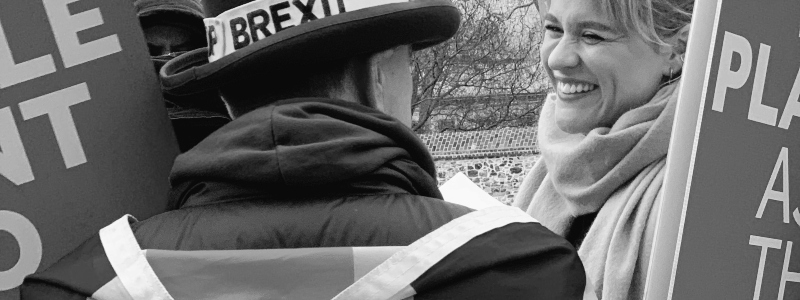The result of the US presidential election has created shockwaves around the world. The USA is taking its first steps into an uncertain future, with the reverberations of one of history’s most brutal presidential campaigns still echoing. At this time, it seems apposite to reflect on the qualities of a strong leader.
Most people would agree that self-awareness is a vital element of good leadership. In order to effectively lead a team, group, organisation (or indeed, a country) you need to have a conscious understanding of your own character, desires and motives.
It is vital for a good leader to be able to take a step back and see the bigger picture. They should be able to examine their own internal responses, to have a clear vision and find a way of delivering something to others – a strategy, an idea, a plan – that has been carefully thought through.
The ability to reflect on emotional responses is crucially important – not to just blindly react to a feeling, which might lead to lashing out or sinking into despair, but to be able to identify it and to be curious about where it originates and what it might be telling you.
A strong leader will be resilient and robust enough to see challenges as opportunities for growth and to adopt a responsive, rather than a reactive style. Someone who has developed their self-knowledge does not become triggered easily or allows perceived slights to their ego to distract them from their objectives.
The ability to communicate effectively is also highly important. An effective leader should be able to listen attentively and empathise with the points of views of others, especially if these differ from their own. It is important for a leader to bring diverse people together to obtain a variety of different viewpoints. However, this does not mean that leaders should unquestioningly accept ideas – the ability to effectively challenge and provide constructive feedback is hugely important and will earn respect.
A strong leader should be firm but fair, and should set and hold clear boundaries, inspiring trust and confidence in others. This can be a difficult tightrope to walk – too harsh, and you alienate others. Too soft, and you are not taken seriously.
Of course, this process of self-development will never be entirely finished, but the ability to dispassionately examine your own behaviour and feelings is key to developing your capacity for self-awareness.
Unfortunately, as we all know, sometimes, the people that are chosen for leadership roles are not necessarily those who encompass these ideal qualities. Many people have stories of workplace bosses whose unreasonable behaviour makes work difficult for everyone they encounter. It remains to be seen how effective the new President of the United States will be in encompassing these qualities.
However, we can all work towards adopting these characteristics in our daily lives. After all, we all control our own behaviour and reactions to events in the world. You are in charge of all the various physical and mental components that make up the whole of ‘you’, whatever that may be. While matters of world leadership may be outside our control, we can start with ourselves, today.
Kate Connolly and Sam Jahara
Click here to view and download a full PDF of this blog post.






